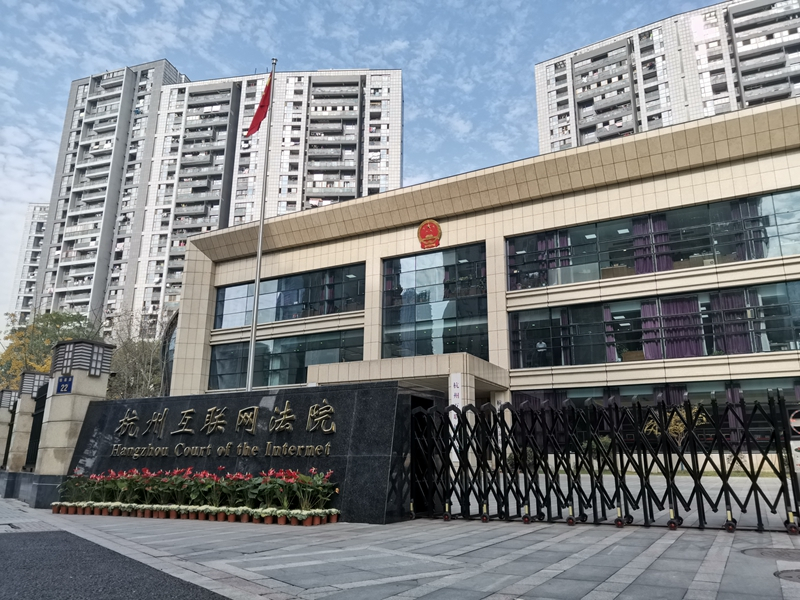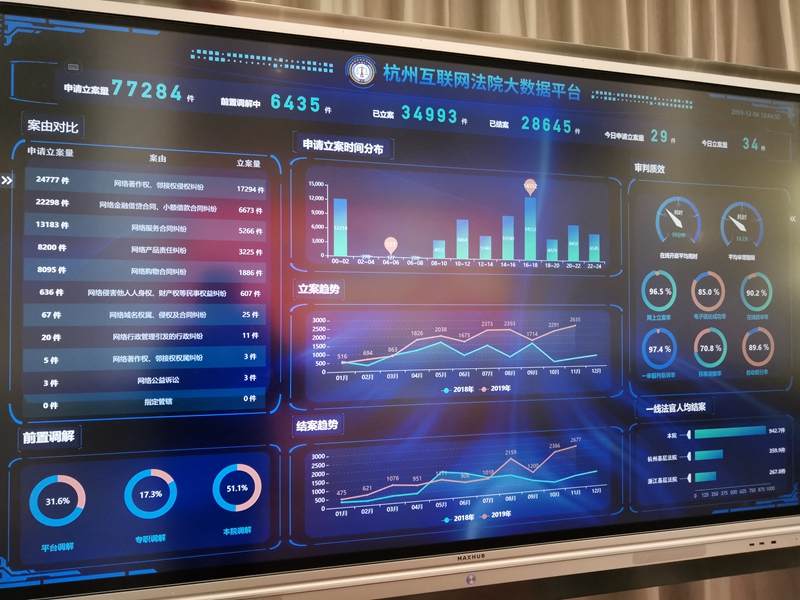The Supreme People's Court of China (SPC) officially publishes the white paper on Chinese Courts and Internet Judiciary on Wednesday in Wuzhen, east China's Zhejiang Province.
This is the first white paper on the practice of Internet Judiciary by Chinese court, and the first white paper about the court innovations and developments in the internet era worldwide.
The white paper illustrates the paths, values, approaches and progress of Internet Judiciary.

China's first internet court on Hangzhou CGTN Photo
China's first internet court on Hangzhou CGTN Photo
On August 18, 2017, China officially established the first Internet court in the world – Hangzhou Internet Court. The other two Beijing Internet Court and Guangzhou Internet Court were successively established in September 2018. The internet courts are the milestones in the development of Internet Judiciary, which leads to a brand-new path.
They also represent for the exploration and implementation of Internet Judiciary has been institutionalized and systematized. Three internet courts have taken advantages of structure, policy, technology and talent. They have accumulated a series of experiences, which set up the benchmarks in the fields of online case handling, online platform development, litigation guidelines and rules, technology application, internet governance.

A real-time data visualization platofrom at Hangzhou internet court /CGTN Photo
A real-time data visualization platofrom at Hangzhou internet court /CGTN Photo
Local courts in different places have applied the cutting-edge technologies like big data, cloud computing, artificial intelligence (AI), blockchain and Internet of things, comprehensively promoting the in-depth utilization of intelligent technologies in the judiciary.
With blockchain, the SPC has established the Uniform Platform of Judicial Blockchain. A total of 194 million pieces of e-evidence have been preserved on the platform, supporting for evidence authentication and examination in future hearings, which significantly eases the difficulties in the e-evidence collection, preservation and authentication.
With big data, the SPC officially launched the China Court Big Data Management and Service Platform. It is capable of collecting real-time data of trials and enforcement, judicial administration, and researches from 3,507 courts across the country.
By October 31, 2019, the platform had collected data from 193 million cases and become the largest judicature database in the world. With AI, Chinese courts have been developing various smart assistant platforms for case handling and administrative works.
Intelligent functions developed under circumstance, such as the identification of case complexity, smart case-element profiling, automatic monitor of misconducts in court hearings, accurate recommendation of related laws and similar cases for reference, automatic generation and correction of judicial documents, warnings of decision-making risk deviation have been applied at courts in different places, effectively facilitating court decisions with higher quality and efficiency.